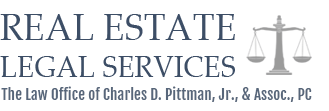Tell me again – Is Short Sale really my only alternative?
Yes Virginia, there really is a Santa Clause! In some cases, Sellers can get out of an upside down residence or investment property without a short sale.
We naturally encourage shortsales because: (1) less damage to your credit than a foreclosure, bankruptcy or ongoing loan payment default; (2) The client experiences Closure as compared to ongoing rental or negative cash flow; (3) Modifications in Virginia have a dismal success rate both in terms of actually obtaining a meaningful payment reduction and in terms of avoiding future default; and (4) in almost all short sales the lender pays most of our legal fees.
But for Sellers who are purely “strategically” seeking a short sale, especially with certain “no nonsense” lenders, Shortsales may require significant cash contributions or ongoing promissory note obligations after the sale. Our short sale team can evaluate your lender(s) and your financial statements and tell you fairly accurately what to expect in regard to these negative consequences of a short sale.
For those Sellers for whom short selling makes no sense, what are the alternatives?
Buyers out there, especially with the tightening credit guidelines of the past few years, will offer you any number of alternatives to a short sale on your underwater property. The balance of bargaining power can best be maintained by Sellers who list and market their property before they are completely “tapped out”. But for Sellers of properties with mortgages that exceed the market value of the property and who do not want to short sell, these are the 7 most common offers you can expect:
(1) A “Subject To” purchase, i.e., the buyer agrees to pay your ongoing mortgage obligations for you; (2) Assumption Purchase where the buyer commits not only to you but to the lender to take full responsibility for your mortgage obligations; (3) # 1 or #2 together with an “escrow deed” or “pocket deed”; (4) #3 + “wrap around” or “performance” deed of trust; (5) Assumption purchase by using a “Land Trust”; (6) Assumption purchase by using a “Land Contract” or “Contract for Deed”; and (7) rent with option.
In the grand scheme of things, the buyer’s best options start at #1 and go down from there. The seller should try to hold out for #7 and compromise from there if there is a good relationship of trust with the buyer. There are serious risks for anything less than #4 for the seller. The only drawback to #4 is that it can be expensive to record the wrap around deed of trust. Bottom line – don’t even consider selling your property with any of these “creative” options, #1 through #7, without legal representation. There are an infinite number of nuances and consequences buried in the small print and very few of these offers will come to you based on the standard forms used in normal real estate transactions in Virginia! Don’t rule out the creative approach if you simply can’t accept a short sale, but don’t “go it alone” either. Get good legal representation from a law firm familiar with all the alternatives #1 – #7.


